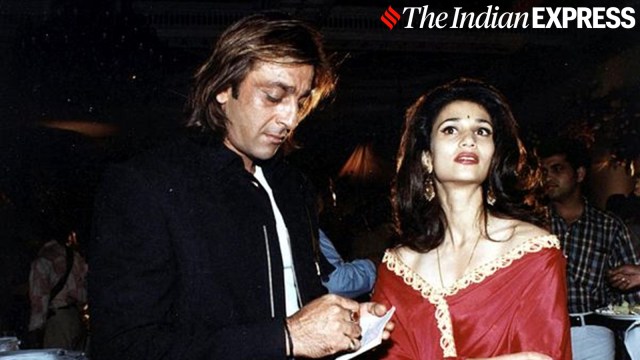📣 For more lifestyle news, click here to join our WhatsApp Channel and also follow us on Instagram
‘Has been particularly very tough for bhaiya’: Priya Dutt on how losing his first wife Richa deeply affected brother Sanjay; expert on impact of early grief
Sanjay Dutt’s life has been marked by both public and deeply private battles.
 Years after his wife Richa Sharma's demise, Sanjay Dutt faced his own battle with cancer (Source: Express Photo)
Years after his wife Richa Sharma's demise, Sanjay Dutt faced his own battle with cancer (Source: Express Photo)Grief, illness, and emotional resilience often shape people in ways the outside world rarely sees. Sanjay Dutt’s sister, Priya Dutt, recently offered an intimate perspective on how her brother has coped with life’s many upheavals — from personal loss to health challenges.
Speaking on the Vickey Lalwani podcast, Priya shared, “He has never had that stability. It was a very tragic thing… Richa… such a young age to get diagnosed with a brain tumour, and she passed away that young. It has been particularly very tough for bhaiya. It is not about how we have got it all bad. I always believe that your problems always seem too much till the time you see somebody else’s problems. With god’s grace, at least we have been able to come out stronger out of every problem… hua hai problems, I am not saying nahi hua hai (There were a lot of problems, not denying that). We have seen the worst and the best as well.”
She added, “But he is a resilient person; he takes things in his stride. You can’t pin him down for too long; he will always come back.”
Sanjay’s life has been marked by both public and deeply private battles. Years after his wife Richa Sharma’s demise, the actor faced his battle with cancer, which he approached with quiet strength.
“His treatment started immediately, and all he asked was not to be treated like a patient,” Priya said. “He used to come from chemotherapy and would work out straight after. He doesn’t let anything bring him down.” Through all of this, his family’s support remained a steady presence. “We give each other space when everyone is happy, but whenever anything goes wrong, we rally together.”
How can individuals cope with losing a partner at a young age?
Gurleen Baruah, Existential Psychotherapist at That Culture Thing, tells indianexpress.com, “Losing a partner early in life disrupts not just the heart, but one’s entire sense of self and future. From a psychological lens, this kind of trauma strikes at the root of attachment. It leaves the person not only grieving the individual who is gone but also the life, roles, and possibilities that will now never be.”
 Sanjay Dutt with his wife Richa Sharma (Source: Express Photo)
Sanjay Dutt with his wife Richa Sharma (Source: Express Photo)
The grief is not just about losing someone; it’s about being forced to confront how fragile, arbitrary, and unfair life can be, notes the expert. “That confrontation can bring immense loneliness — the kind that doesn’t always have words. People often try to ‘move on,’ but grief of this kind doesn’t follow linear timelines. It reshapes you.”
Healing begins with giving grief its space — not rushing it, not silencing it. Psychologically, Baruah notes that this might involve trauma-informed therapy or meaning-making approaches like narrative therapy. “Existentially, it often involves rebuilding identity, learning to carry the loss without letting it swallow one’s future,” she explains.
Psychological benefits of maintaining routine or physical activity during illness
When Priya Dutt shared that Sanjay resumed his workouts right after chemotherapy, she was pointing to something deeper than just physical fitness — the instinct to reclaim a sense of agency.
Psychologically, Baruah says, routines are grounding. They offer predictability in the midst of chaos, which reduces anxiety and gives the mind something familiar to hold onto. Exercise, in particular, is known to boost endorphin levels — the body’s natural mood lifters — which can help counter the emotional toll of illness. Additionally, physical activity enhances self-esteem, improves sleep, and can reduce symptoms of depression and fatigue often associated with chemotherapy.
📣 For more lifestyle news, click here to join our WhatsApp Channel and also follow us on Instagram



- 01
- 02
- 03
- 04
- 05
























